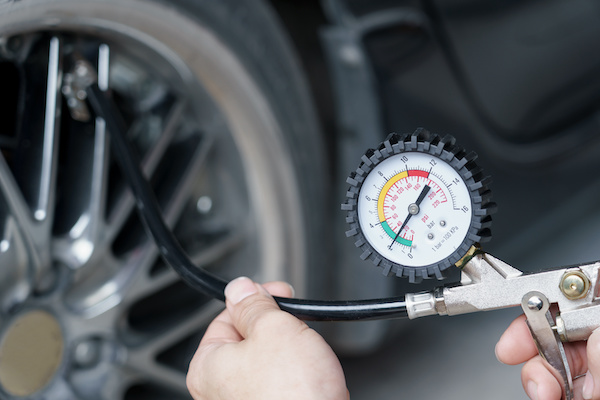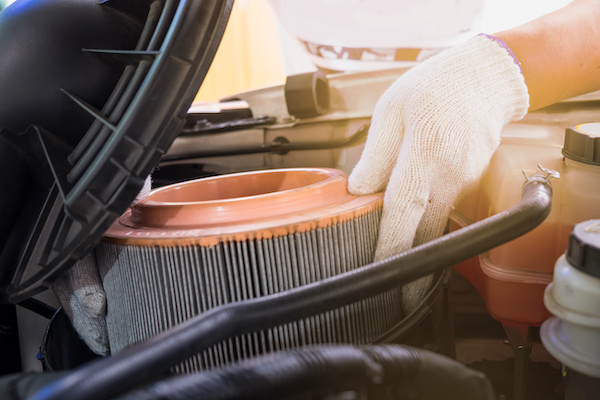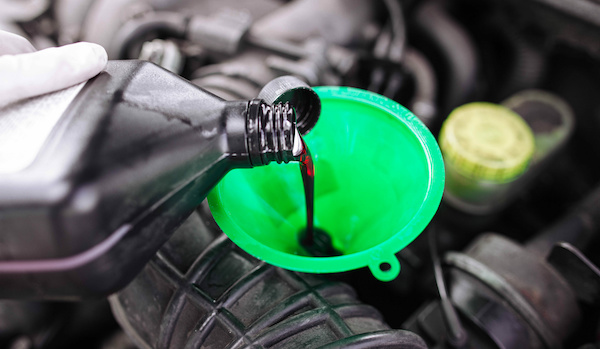Posted on 6/30/2023

Regularly checking your tire pressure and having your tires inspected once a month as part of your car maintenance routine is crucial for your safety and optimizing your car's performance. This easy process only takes a few minutes but can prevent costly repairs and ensure a smooth ride. Let's explore how to properly check your tire pressure and understand why it is essential. Tire Pressure Gauge to the Rescue The primary tool you'll need is a tire pressure gauge to check your tire pressure. A tire pressure gauge is a device that measures the air pressure within your tires and is available in most auto parts stores costing anywhere from $5 to $15, depending on the type you choose. Here's how to check your tire pressure: Start with a cold tire, preferably after your car has been sitting for at least 3 hours. A heated tire will give inaccurate pressure readings due to the heat that builds up as you drive. Review the manufacturer's recommended PS ... read more
Posted on 5/30/2023

You're marveling at all the advanced features and electrical components that make modern vehicles so convenient. But have you ever wondered how these components receive the power they need to run? Enter the unsung hero of your car's electrical system: the alternator. If you're not sure what role the alternator plays and why it is crucial for your vehicle's functionality, follow along with us. The alternator is like a miniature power plant in your vehicle's engine. Its primary function is to convert mechanical energy into electrical energy. As the engine runs, the alternator utilizes a belt connected to the engine's crankshaft to rotate a magnetic field within a set of wire coils. The cycle induces an electrical current that gets directed to various components and systems in your car. One of the major responsibilities of the alternator is to charge your car's battery. While the battery initially provides the electrical energy needed to start the engine, it ... read more
Posted on 4/26/2023

According to some automotive blogs, not to mention mechanics and many do-it-yourselfers, older cars, trucks, and SUVs with non-electric ignitions should receive a tune-up every 10,000 to 12,000 miles or annually. Meanwhile, newer cars, trucks, and SUVs with a fuel injection system and an electronic ignition can go 25,000 to 100,000 miles before needing one. Either way, not getting a tune-up when you're supposed to do so is a pretty good way to find yourself stranded on the side of the road. Signs That Suggest Your Vehicle Might Be In Need of a Tune-up Whether you drive an old or new vehicle, it will let you know when it's due for a tune-up. Some of the signs to look out for include: Poor fuel efficiency - Before breaking down and leaving you stranded on the roadside, most vehicles lose power and consume more fuel when they require a tune-up. Unusual noises - Most new and older vehicles will serenade their owner with new and peculiar sounds when they're due for a tune-up ... read more
Posted on 3/21/2023

Transmission fluid is one of the most important fluids in your car. If you want your transmission to run reliably over the years, you must service this fluid. Over time, the transmission fluid can break down, become contaminated, or lose its ability to lubricate the transmission components effectively. To keep your vehicle running as it should, you need to know when to replace the transmission fluid and actually do it regularly. How Often Should You Replace Transmission Fluid? The frequency of transmission fluid changes depends on several things, including the make and model of your car, your driving habits, and the type of transmission fluid your car uses. In general, most manufacturers recommend changing transmission fluid every 30,000 to 60,000 miles or every two to four years. However, if you frequently tow heavy loads, drive in extreme temperatures, or partake in stop-and-go traffic frequently, you may need to change your transmission fluid more frequently. Additionally, if you ... read more
Posted on 2/27/2023
.jpeg)
Rust is a common issue in many vehicles, and it can cause significant damage to the body of the car if not addressed promptly. If you live in an area where road salt is used in the winter or your car is often exposed to salt water or other corrosive materials, it's important to be aware of where rust commonly occurs in cars. Here are some common areas to check for rust and tips on how to prevent and repair it. Wheel Wells and Fenders: Wheel wells and fenders are particularly vulnerable to rust, as they are often exposed to moisture, debris, and salt. The moisture can accumulate in the wheel wells and fenders, leading to rust formation. To prevent rust, make sure to clean your wheel wells and fenders regularly and remove any debris or salt buildup. If rust has already formed, you may need to remove the affected area and apply a rust inhibitor or replace the entire fender or wheel well. Undercarriage: The undercarriage of your vehicle is another ar ... read more